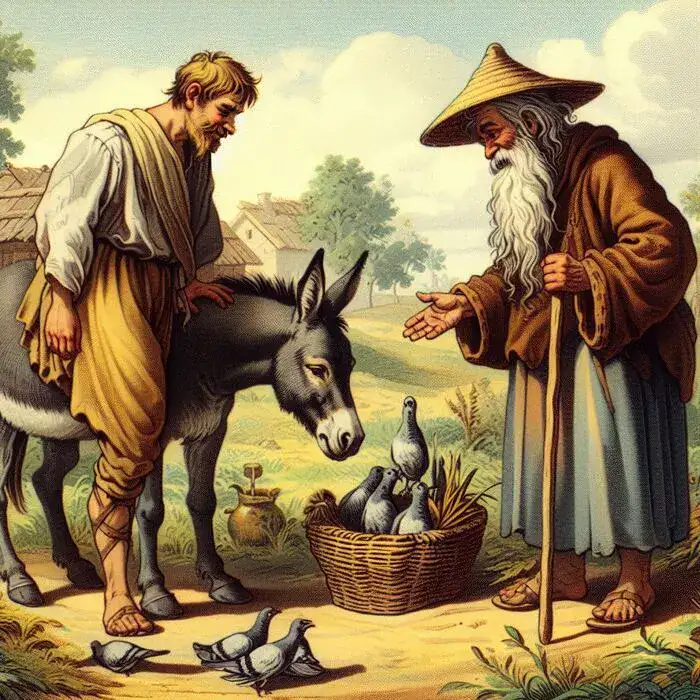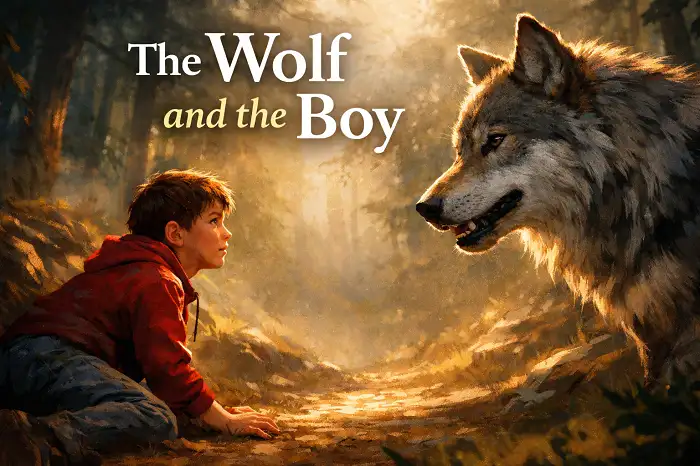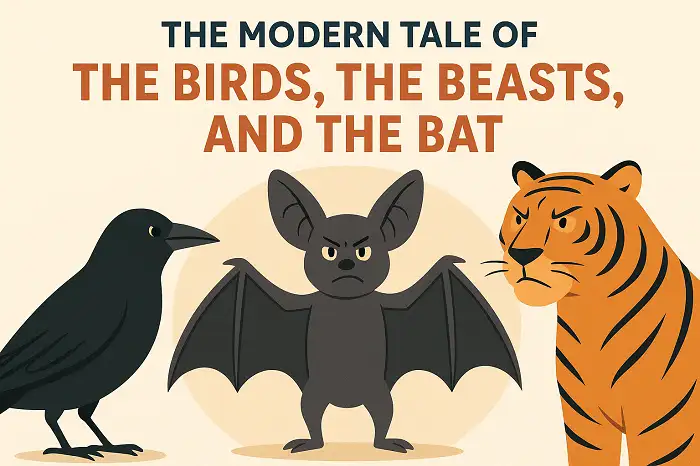The Ass and the Old Peasant by Aesop with new words in real context, video, discussion questions and moral of the short story for ESL students based on the English Immersion Program The Ass and the Old Peasant is now in the public domain available on Gutenberg Project. Video of the Ass and the Old Peasant https://www.youtube.com/watch?v=SUzyA7ailQU The Ass and the Old Peasant An old peasant was sitting in a meadow watching his ass, which was grazing close by, when all of a sudden, he caught sight of armed men stealthily approaching. He jumped up in a moment, and begged ...
Home » English Short Stories » The Ass and the Old Peasant by Aesop with New Words & Video

The Ass and the Old Peasant by Aesop with New Words & Video
Updated: by Dr. Mohammad Hossein Hariri Asl
Time to Read: 4 minutes | 332 Views | 4 Comments on The Ass and the Old Peasant by Aesop with New Words & Video
Share This Post
About the Author
Dr. Mohammad Hossein Hariri Asl is an English and Persian instructor, educator, researcher, inventor, published author, blogger, SEO expert, website developer, entrepreneur, and the creator of LELB Society. He's got a PhD in TEFL (Teaching English as a Foreign Language).
Number of Posts: 4242



The story serves as a reminder about the importance of loyalty and making thoughtful decisions. In both personal and professional aspects, valuing loyalty and recognizing the significance af others and making the right decisions can foster trust and culminate in a growing virtuous society.
Aesop’s fable, “The Ass and the Old Peasant,” indeed highlights the virtues of loyalty and thoughtful decision-making. The tale serves as a timeless lesson that in both our personal and professional lives, loyalty can be a cornerstone for building trust. Recognizing the value in others’ contributions and making wise decisions based on these values can lead to a more cohesive and virtuous society, where mutual respect and trust flourish.
This story shows that a making decisions based on immediate benefit can lead to the long term problems. For instance, people might purchase for fashion without needing something over long term savings or investment. This can lead to financial instability. Beside, in the age of convenience, eating fast foods and skipping exercise might be good now, but it leads to long-term health problems.
Thank you for commenting. Here is the revised version of your comment:
This story shows that making decisions based on immediate benefits can lead to long-term problems. For instance, people might purchase fashion items without needing them, over long-term savings or investments. This can lead to financial instability. Besides, in the age of convenience, eating fast foods and skipping exercise might seem good now, but it leads to long-term health problems.
Please don’t hesitate to ask me if you have any question.